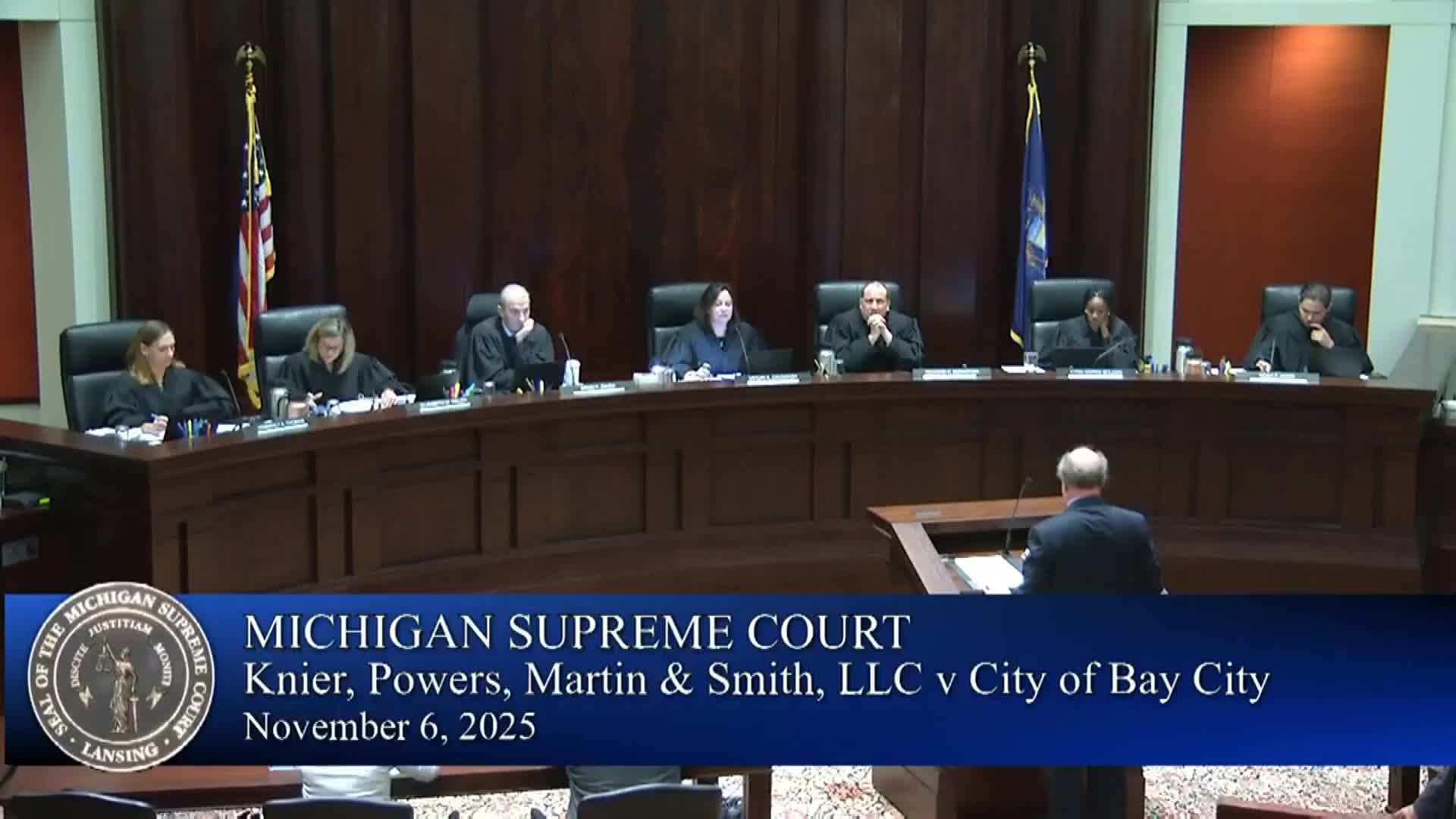Michigan Supreme Court weighs whether commercial roof replacements qualify as "additions" under Proposal A
Get AI-powered insights, summaries, and transcripts
Subscribe
Summary
David Powers, attorney for the appellant Meyer Powers Martin & Smith LLC, told the court the central question is whether routine roof replacement is an "addition" under Proposal A, the 1994 constitutional amendment that caps increases in a property's taxable value.
David Powers, attorney for the appellant Meyer Powers Martin & Smith LLC, told the court the central question is whether routine roof replacement is an "addition" under Proposal A, the 1994 constitutional amendment that caps increases in a property's taxable value. "Just by taking off the old shingles and putting on new shingles, we did not create an addition," Powers said, urging the court to apply the term as understood in 1994 and to rely on the 1994 statutory definition the court previously identified in WPW Acquisition.
Powers told the justices the term "additions" must be read as a technical term and limited to the two categories the court and lower courts have recognized: new construction or "a physical addition of equipment or furnishings," citing WPW Acquisition and a later Court of Appeals decision that the Supreme Court approved. "The 1994 statute speaks of value increases just for those two things," he said, and argued the city had not cited any authority treating a roof replacement as new construction.
Tom Ammon, counsel for the City of Bay City, replied that the General Property Tax Act and its cross-references support treating some commercial roof replacements as additions. He pointed to statutory provisions the legislature has used to carve out replacement construction after casualty events and to limits the legislature placed on those carve-outs: "replacement construction means construction that replaced property damaged or destroyed by an accident or act of God," Ammon said, and noted the statute includes conditions such as using "substantially the same materials" and a roughly five-percent square-footage limit.
Several justices pressed both sides on practical and jurisdictional consequences. One justice asked whether a roof replaced after storm damage would be treated differently than routine maintenance and whether the legislature intended such a distinction. Powers answered that he did not believe the legislature intended routine maintenance to trigger uncapped increases. Ammon said the statutory framework and assessor practice reflect a broad conception of "additions" for commercial and industrial property and that the legislature could have created different exemptions if it wished.
The court also questioned whether the Michigan Tax Tribunal had jurisdiction to decide a facial constitutional challenge to the statutory scheme. Ammon and others noted appellate opinions have given mixed signals; Ammon said a facial challenge ordinarily belongs in circuit court, with the Tax Tribunal addressing valuation questions and the court of appeals conducting de novo review of constitutional issues. The justices discussed possible remand paths if the tribunal lacked jurisdiction.
Counsel for the appellant reserved two minutes for rebuttal and, at the end of argument, said he had no further response. The court took the case under submission.
